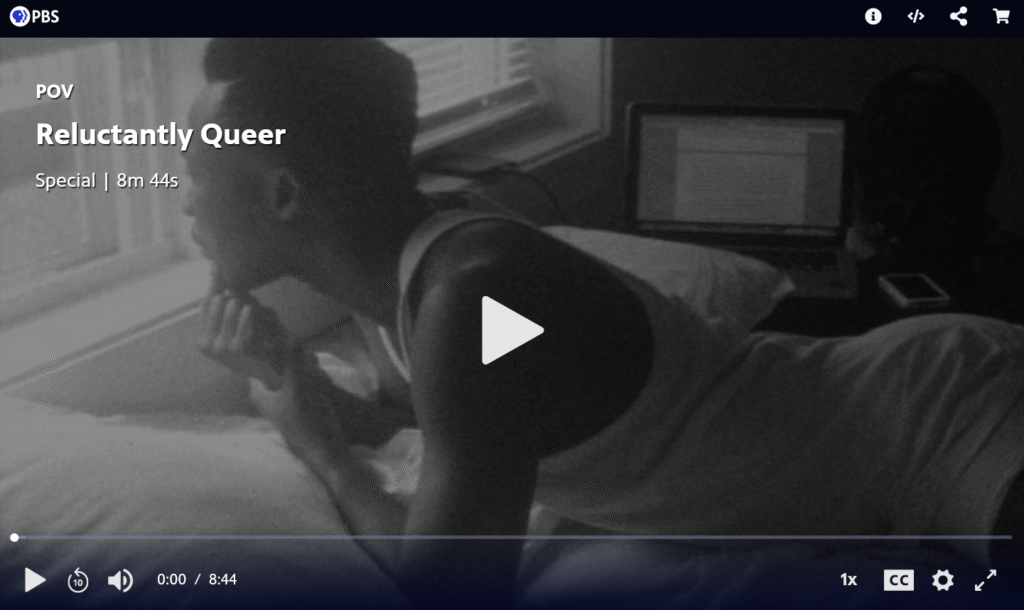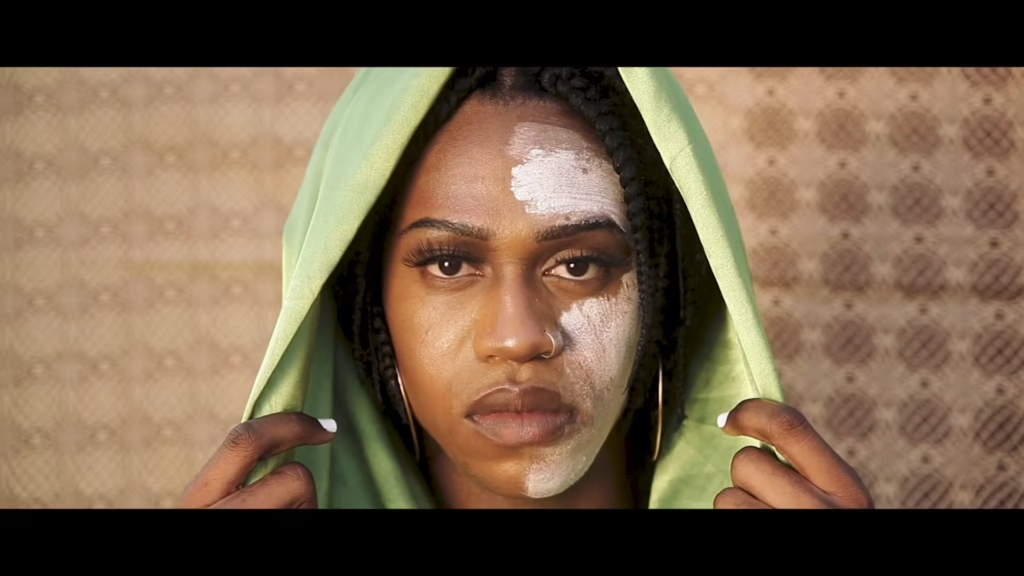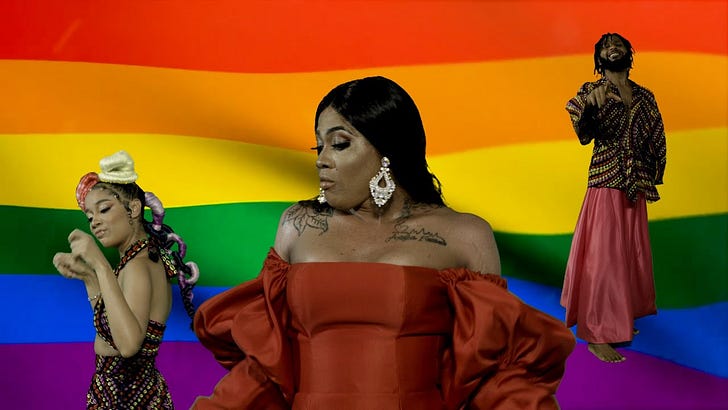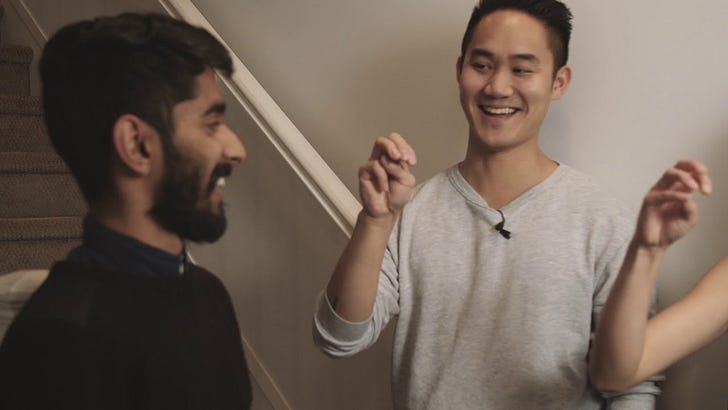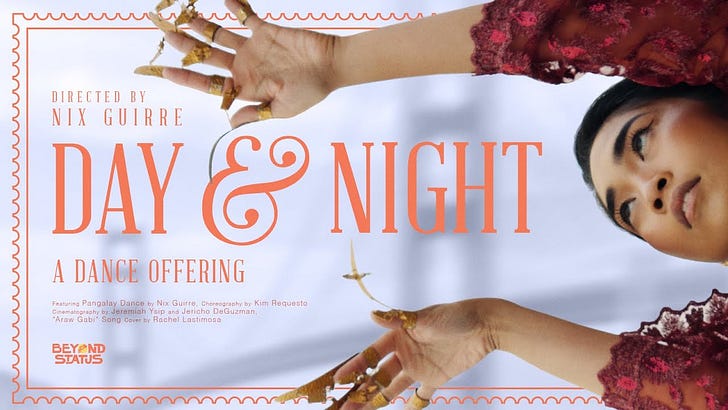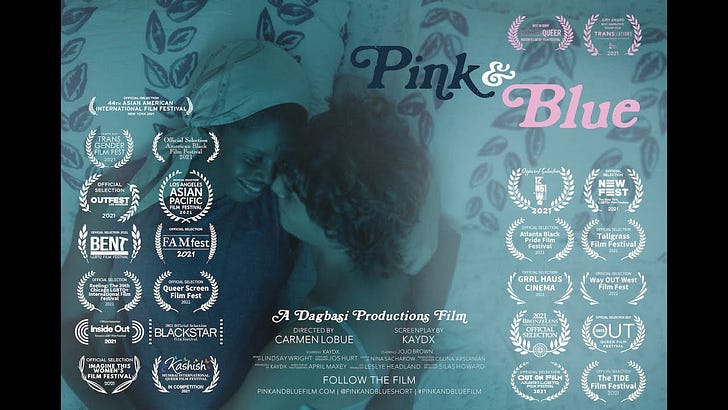Nine films queerly go where no short has gone before
You have no idea how excited I’ve been to have an outer space week on queer short cuts. For months, I’ve been gathering space-themed shorts from wherever I can find them – turns out it’s challenging to set your film in other worlds when many short films don’t have a big budget! – but I’m very pleased with everything I’ve found and have been looking forward to sharing them with all of you.
There are number of common themes – separation, discovery, grief, love, friendship, exploration, and rejuvenation – that traverse multiple films. But the only theme that unites them all is how the films explore relationships – whether between humans, monsters, aliens, or a relationship to space itself, a reason for looking to the stars.
“DEPARTURE REQUIRED. MANDATORY SPACE GATE SERVICE (SOCIOCYBERNEERING).”
Auroras, created by Niles Heckman, is a short but powerful film in which an engineer known as the Occupant (Jess Dela Merced) is forced to leave her Loved One (also played by Jess Dela Merced) for a mission at a space gate that will take her away for years.
Despite logistical limitations, the film has frankly impressive special effects. “[Auroras] was literally shot with a 3-person crew in my living room on a tiny green screen stage using hacked GH2 & Canon 5D cameras,” said creator Niles Heckman in an interview with Directors Notes. There was also an original version of the film that had a voiceover by Samatha Cutaran, but that appears to have been deleted, with only the instrumental version left online.
Auroras
“So far, no one has been able to compare to a good night of stargazing, so they’re the ones who need to step up on their game.”
In A(romantic Production), written and directed by Kass Parish, Astrid (Aliah Mahalati), an astronomy lover, struggles through a series of relationships that are a mismatch between Astrid and their partners. It’s not until they watch the newest video by Gwyne, one of their favorite astronomy YouTubers (Sarah Wahrmund), about Gwyne’s own take on relationships and sexuality, that Astrid figures out what they want – and don’t want.
A(romantic) Production
“My wife and I were astronauts. Really fucking good astronauts.”
Amina, directed by Shanrica Evans, is a story about grief. After her wife Amina (Kasper), an astronaut, is lost in a space accident, Noa (Mona McAllen) has to try and come to terms with what happened while expecting their child. Noa gets through her days in near-silence and anxiety, looking for a way to reconcile her love for Amina with her need to move on and let go in the ways that she can. Every element of this film is pitch-perfect: the direction, the stunning performances by both leads, music, the imagery of the desolate planet where Noa dreams of Amina, and the all-too-grounded palate of the scenes in Noa’s real life.
Unfortunately, I’ve been unable to find a website or social media for director Shanrica Evans, only an interview with Variety where she talks about making Amina: “Usually, space and sci-fi movies are trying to speak on universal themes about relationships and family and love, and I knew I wanted to make a movie about that meeting point where grief meets love and you keep living your life. These two astronauts are home for each other, even when the world isn’t home for them, or super safe or comfortable [because they are queer].”
Amina
Gay Werewolves in Space, a micro-short created by Cora McKenna, with backgrounds by Jana Ribkina, does exactly what it says on the tin, and it is too cute not to include! It was created for Studio Meala’s series of Meala Minis.
Gay Werewolves in Space
“Don’t give me back my heart.”
Heart Wide Open, written and directed by Susanne Serres, is a captivating short starring Schelby Jean-Baptiste and Anaïs Damphousse Joly that drops us right in the middle of the action. Watching it requires some context given in the film’s description: a scientist named Urantia received a transplanted alien heart that can absorb negative emotions and recreate them into positive ones. Now Urantia has returned to earth to try and save humans, who are at war. In this short, she’s in despair at horrors she’s seen around her when she’s found by an old friend who urges her to give Earth another chance.
Heart Wide Open
“Sonia. You’re not beating yourself up about this, are you?”
Like Amina, the story that In Orbit is telling is heartbreaking from the get-go. Released by the French animation studio and school Gobelins, In Orbit, written and directed by the team of Soham Chakraborty, Hanxu Chen, Meton Joffily, Justin Polley, and Julia Trouvé, introduces us to Sonia (Liya Han), who is about to be transferred from her space station for another. At her goodbye party, Sonia is too caught up in regrets and trauma over an accident involving her partner (Germaine Colajanni).
As an interesting review at Under Southern Eyes notes, the imagery and sense of scale and movement make the animation feel creative and playful even while depicting a somber storyline. That, combined with the haunting score, make every second of this short film compelling.
In Orbit
“A falling star! Quick, make a wish!”
Star Fallen, created by Alex Tagali, takes us through the relationships of the two protagonists from childhood to old age – both their relationship with each other, and with the stars. The project took about six months from start to finish, as Tagali notes in the description of a “making of” video, with the animation alone taking two months. With a lovely score by Uri Avi, this short will tug at your heartstrings and leave you teary but satisfied.
Star Fallen
“Though in truth the Sunriders were more than mere pilots or messengers in Aurora’s eyes: they were at once their children, parents, doulas, siblings, and lovers.”
Sunrider, created by Halo Starling, is a short vignette from a much larger story: a multimodal speculative fiction project called Planet Femme that includes performance, film, video, prose, photography, and cartography. The premise is that humanity’s survivors are now living on terraformed asteroid earthships run by liberated beings with artificial intelligence. In Sunrider, we focus on one earthship, Aurora, where a group of humans called Sunriders pilot the earthship by connecting with the AI. Along with the interplay between humans and AI, the worldbuilding is grounded in a future where people practice regenerative agriculture and material cultivation and distribution in tune with the needs of their earthship.
“I wanted to imagine a future in which I, and my comrades, could thrive while being neurodivergent, queer, dis/abled, people of color, historically under-resourced, and so on. I also wanted to imagine a future in which the overculture’s relationship to our planet is no longer one of resource domination and extraction, but rather one of interconnection and ecological regeneration,” says creator Halo Starling on their website. “To me, these two concepts—to exist in our fullness, and to approach nature and future with a giving hand—are inseparable. I am also interested in the decolonization and liberation of modern technology, which so often is created to serve the capitalist machine that will be our undoing. In this future, nature and technology fuse, and humans are able to enter into an empathetic, symbiotic relationship with the machines and AIs that we have borne.”
Sunrider
“The sickness starts under the skin. They say it comes from the water, and turns you into a monster.”
New Bodies, created by Bo Moore, packs impressive world-building, plot, character relationships, and fantastical concepts into a few short minutes. On Mars, a dystopian government hunts down people impacted by a water-borne “sickness”, including the protagonist’s mom and her girlfriend. But the “illness” turns out to be different than expected. I don’t want to ruin any of the plot for you, but the way New Bodies is centered on love and transformation as an antidote to authoritarianism and violence has made it one of my favorite short films.
New Bodies


